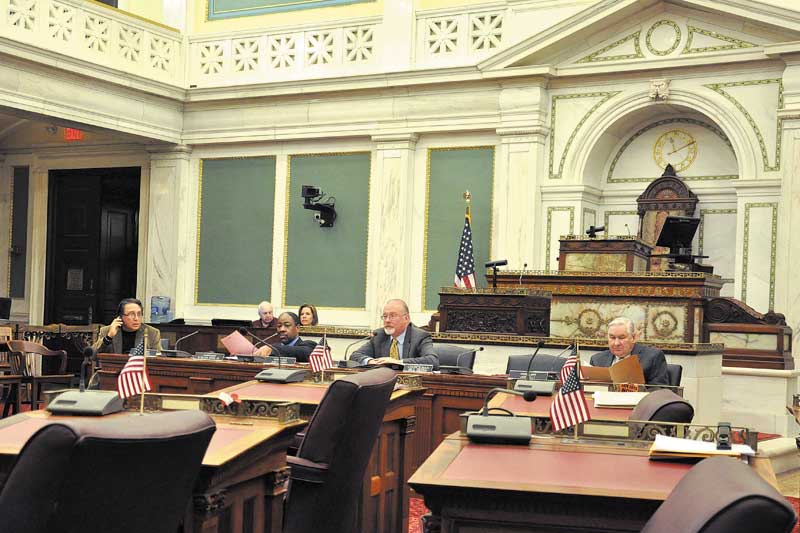A City Council committee this week unanimously approved a measure that would require some city contractors to offer domestic-partner benefits for the same-sex partners of their employees.
The measure would mandate that service contractors receiving more than $250,000 from the city must extend the same benefits they offer to heterosexual married partners of their employees to employees’ same-sex partners. The measure would apply only to companies that currently offer benefits plans.
Businesses that fail to comply could be suspended or barred from bidding on future contracts for up to three years.
“In the 21st century, the battle for equal rights needs to end with equality being the victor,” Reynolds Brown said in a statement. “We have an opportunity with this bill to take one more important step to ensure that all Philadelphians who are ‘created equal’ are treated equal. Judging one’s employment benefits due to gender of their life partner is not acceptable in this day and age. Period. We will change that standard through the Equal Benefits Bill.”
Reynolds Brown was not able to be present for the vote because of a family emergency.
Voting in favor of the measure were committee chair Councilman Bill Greenlee and Councilmen Frank DiCicco, W. Wilson Goode Jr., Bill Green and Jack Kelly. Committee vice chair James Kenney was absent.
Greenlee, DiCicco and Kenney are cosponsors.
The Councilmembers held a public hearing before the vote, with all testimony in favor of passage. Witnesses included Equality Pennsylvania board president Adrian Shanker, Philadelphia Commission on Human Relations executive director Rue Landau, Liberty City Endorsement Committee chair Sara Jacobson, Mazzoni Center executive director Nurit Shein and attorney and former City Council candidate Sherrie Cohen.
Shanker encouraged the councilmembers to consider the basic tenets addressed in the bill.
“We are talking about partner-based employee benefits such as access to medical coverage, FMLA [Family and Medical Leave Act] and bereavement leave,” he testified. “While good people may disagree on national social issues, I think it is pretty non-controversial to suggest that these benefits should be required for large city contractors to provide to same-sex partners of their employees. If we start with the basic idea that all people deserve equal treatment, equal benefits and in fact equal rights, then there is no rational reason to oppose the Equal Benefits Bill.”
Landau also addressed the theme of equality.
“The purpose of this law is simple: equal treatment,” she said. “This truly is an issue of equal pay for equal work.”
Jacobson urged the lawmakers to remember the promises many of them made to Liberty City membership to support the LGBT community when asking for the club’s endorsement in this year’s election.
Shein noted that about 35 percent of Mazzoni’s clients are uninsured, and that expanding benefits opportunities for LGBTs in the area makes both economic sense for the city and can foster a better and more loyal workforce.
The first law of this nature was instituted in San Francisco in 1996, and Cohen noted that 14,000 companies in the city have since complied, representing a combined workforce of about 2 million people. The enrollment rate in the domestic-partner program is very minimal — between 1 and 3 percent — Cohen said, and has had an “almost negligible” financial impact on the companies.
No testimony was offered in opposition, and the councilmembers posed no questions for the witnesses — which, noted Greenlee, demonstrates the “long way” the city has come on LGBT issues.
Jen Colletta can be reached at [email protected].

